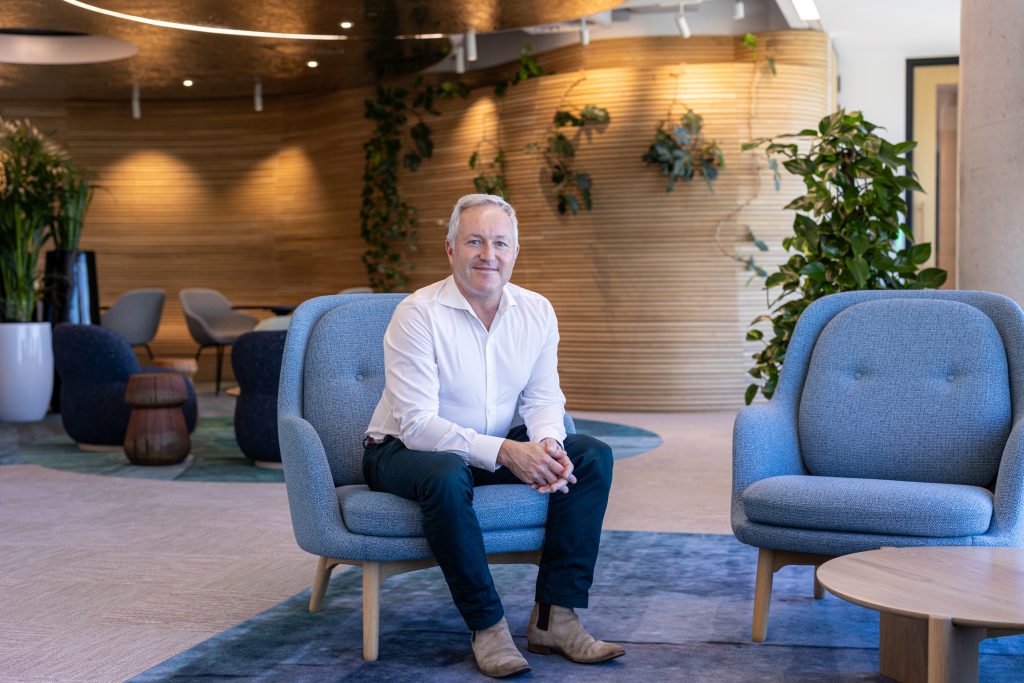
Why generative AI is a gamechanger for lawyers in Australia and New Zealand
I was delighted to co-host an immersive session in Sydney last week to discuss and demonstrate the transformative impact of AI on the legal profession. Alongside my colleague Antony Cook, Corporate Vice President and Deputy General Counsel at Microsoft, we welcomed representatives from leading legal services publications for a morning of stimulating discussion on how Australian and New Zealand law firms and in-house legal teams can responsibly unlock the potential of generative AI. We also shared stories of those organisations already doing so, including MinterEllison.

Several key themes emerged, with AI’s ability to enhance productivity, drive innovation and reshape legal practice in Australia and New Zealand taking centre stage.
As we discussed, AI tools that automate document discovery processes, due diligence reviews and contract drafting and formation have long been used widely in the legal profession. Sophisticated data analytics and machine learning help legal teams make better decisions. But the arrival of generative AI tools in 2023 is enabling lawyers to increase their productivity even further, supported by Microsoft’s $5 billion investment in Australian cloud and AI infrastructure.
These tools are a potential game changer for lawyers, expediting legal research, generating summaries, and getting lawyers off to a good start in drafting documents like contracts and court pleadings. With appropriate vigilance and safeguards, they represent an incredible opportunity for the profession to speed up routine work safely and securely and effectively deliver smarter work, faster.
AI adoption within Australian and New Zealand legal sector
As a new white paper from Microsoft reveals, Australian and New Zealand lawyers and in-house counsel are among the first movers in taking up generative AI tools and opportunities, with 40 per cent of firms already experimenting.
One reason is the highly positive response firms get from their people when they trial generative AI solutions such as Copilot for Microsoft 365. By offering lawyers a ‘copilot’ to handle routine documentation and administrative tasks, generative AI can allow them to refocus on the more strategic, high-level and interpersonal requirements of their role.
Another reason law firms are early adopters is that they trust Microsoft’s approach to safe and responsible AI development and use. We are building our AI tools on top of our existing data security, privacy and compliance controls and policies, which helps ensure they are secure, trustworthy and compliant.
At Microsoft, we’re also committed to assisting our customers and partners on their responsible AI journeys, by delivering on our AI Customer Commitments. From our discussions with customers, we’re finding that here, too, the Australian and New Zealand legal sector is ahead of the game. Many firms are already well advanced in designing strong governance mechanisms to ensure that their AI deployment and use is safe and responsible.
Opening up avenues for innovation
As my colleague Antony Cook pointed out, these adoption levels are partly due to the relatively high levels of digital literacy and cloud computing deployment in Australian and New Zealand firms, along with a forward-thinking legal fraternity that embraces innovation.
That’s opening up exciting scenarios where we’re seeing firms start to reimagine the types of services they can offer clients when they harness generative AI.
Take due diligence, a time-consuming and resource-intensive process inherent in large transactions. Pattern-matching AI tools have long played a role in due diligence document and data review processes. Using large language models, new generative AI tools now offer cutting-edge document comparison and verification that can rapidly review large volumes of contracts for risk and compliance issues.
As we discussed, however, generative AI systems and tools are imperfect and they sometimes make errors. As such, legal practitioners must maintain responsibility and accountability for their legal work product, and keep a ‘human in the loop’ to review, edit, customise and quality-assure content, just as partners and other experienced lawyers have always done when reviewing the work of an early-in-career lawyer.
MinterEllison: Pioneering generative AI technologies
A personal highlight of the day was hearing how MinterEllison is responsibly using generative AI technologies. It’s the largest law firm in Australia by market share and number of lawyers. It has long had an industry reputation for technology and innovation. It is also where, in 1996, I got my first job as a graduate solicitor, so it has a special place in my heart.
As Chief Executive Officer Virginia Briggs and Chief Digital Officer Gary Adler explained, the firm has quickly deployed generative AI capability across its marketing, finance, operations, leadership and legal teams. It has also developed guardrails for safe and responsible deployment.

Early signs of the impact of Copilot for Microsoft 365’s on MinterEllison’s business are highly positive. For example, the firm is using the tool to help it develop thought leadership pieces more quickly, such as drafting summaries on new legal developments. It is also developing a range of customised generative AI tools using Microsoft Azure OpenAI Service, in partnership with Microsoft partner Arinco. These include a ‘Microsoft Advice Generator’, which will provide first cuts of legal advice for legal professionals, complete with citations and links to source reference documents. Lawyers at MinterEllison can learn how the tool works through a ‘Thought Process’ feature, which shows how a prompt draws the most relevant data to produce the first draft advice memo.
Seizing the generative AI opportunity
Reflecting on the session, I was struck – not for the first time – by how fast the practice of law is changing. Among law firms large and small, the market is highly competitive and clients expect use of the latest available technologies.
Generative AI is beginning to ripple across the sector, placing astonishing new capabilities in the hands of every lawyer and organisation. Drawing on Microsoft’s approach to safe and responsible AI development and use, and by implementing appropriate AI governance practices, lawyers can safely, securely and responsibly use and benefit from generative AI tools while complying with their legal professional obligations.














